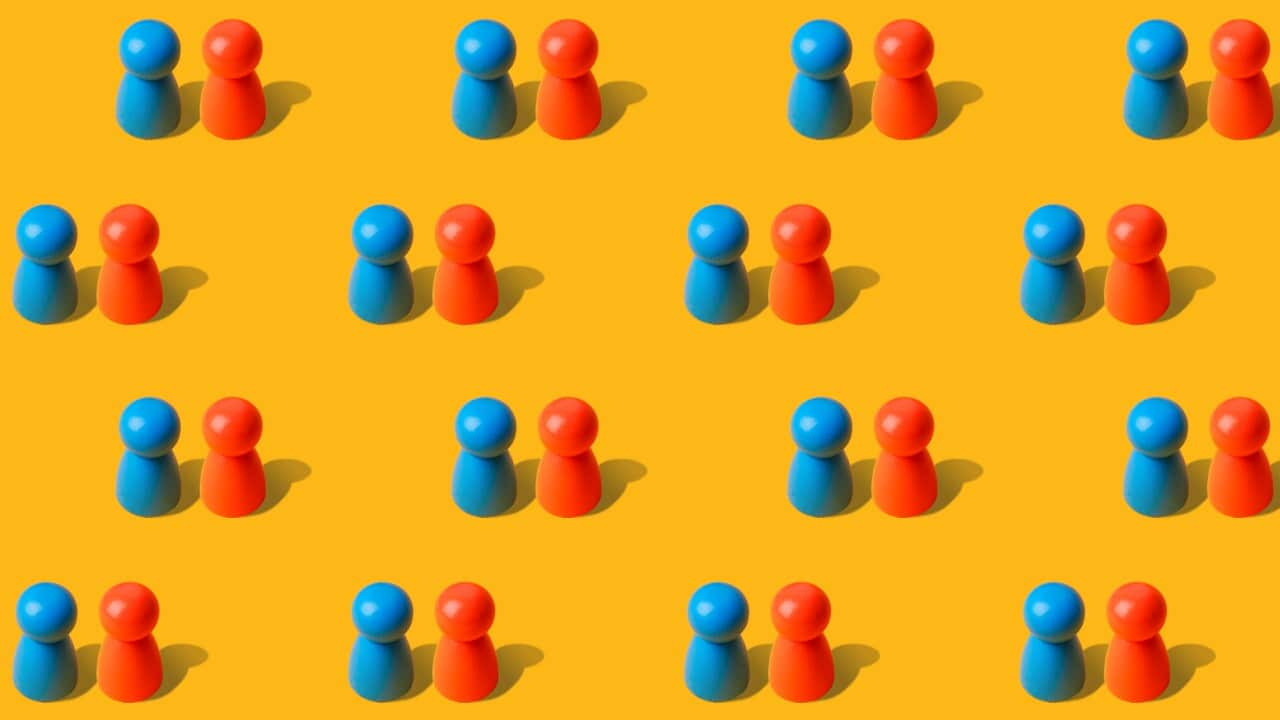This lesson suits intermediate learners. After listening, test your knowledge with our quiz.
Learning notes
Different phrases to use when describing the status of a romantic relationship:
- We’re seeing each other casually.
- We’re (not) exclusive.
- We are in a committed relationship.
- They are officially a couple.
- They are ready to tie the knot.
- They are in an open relationship.
Colloquial expressions:
To slip something into conversation means to mention something without making it sound important.
To be casual with someone means seeing/dating someone romantically but not very serious.
To say you are being exclusive in a romantic relationship means, you are not dating others.
Vocabulary:
To gossip means to talk about other people, often about personal areas of their lives that they would prefer to keep private.
A date is a particular day in the calendar. It can also mean an arranged meeting of a romantic nature.
An open relationship is a romantic relationship in which people agree to have more than one partner.
A de facto partner is someone you live with in a romantic, domestic partnership without being married.
Monogamy is a type of romantic relationship in which people commit to having only one romantic partner at a time.
Non-monogamy is a type of romantic relationship in which people are open to having more than one romantic or sexual partner at the same time.
Transcript:
(Note: This is not a word-for-word transcript)
SBS acknowledges the Traditional Custodians of Country and their connections and continuous care for the skies, lands and waterways throughout Australia.
Hi, my name is Josipa, and in today’s episode, we're going to practise phrases that can be very useful when we’re talking about people and their romantic relationships.
This is something we tend to do more of around St. Valentine’s Day when there is often more romance in the air.
St. Valentine's Day, also known as Valentine's Day, is a holiday celebrated on February 14th each year. It is a day when people show their affection for another person by sending cards, flowers, or chocolates with messages of love.
Being single this year means that I might not receive any cards or flowers, but that won't stop me from celebrating love in my own way. I'll share my plans with you later; right now, let's dive into our language practice.
So, let's imagine Allan and Claire attending a work party. I can see them enjoying finger food in the corner while chatting about the people around them. Maybe we could even say, 'They are gossiping'.
To gossip means to talk about other people and their personal lives. Often this is about private matters that they would prefer that people don’t talk about .
Well, let’s hear what Allan and Claire have to say.
Allan
Look who just came to the party?!
Claire
Uuuu, it’s James. And he’s alone. He doesn’t have a date.
Allan
I heard he’s casual with Rachel.
Claire
Wait, they’re not exclusive, right?
Allan
No, Rachel has been in an open relationship with Anna for years now.
Claire
Really? I didn’t know that. And you, have you ever tried an open relationship?
Allan
Me? No!! I’d get too jealous. Monogamy suits me just fine.
Hmmm… they certainly are having a bit of a gossip, aren’t they! A lot has been said… let’s go through it more slowly. So, James came to the party alone, and Claire said,
He doesn’t have a date.
Now, we all know that a date can stand for a specific day on our calendars, but it also refers to an arranged meeting of a romantic nature.
If you say ‘I’ve got a date with James next week’, you’re likely meeting for a romantic situation.
But you can also say ‘Let’s make a date’ when planning something with friends.
Allan then said,
I heard he’s casual with Rachel.
Being casual with someone, is another way of saying that you are casually dating them, which means you are sometimes spending time with them in a romantic way but that it is not too serious. You can also say that you are keeping it casual with someone.
Do you remember what Claire asked?
Wait, they’re not exclusive, right?
Exclusive. So, when we say that something is exclusive, we usually mean that it is special and not available to everyone. If something is exclusive, it's only for certain people. Like, an exclusive club is just for specific members.
So an exclusive relationship is one in which you are romantically committed to just one person and not dating others at the same time, so you can say. “We’re exclusive”
There are many other ways to say that someone is romantically committed to just one person. For example, Claire could say
My son and Marko are officially a couple now.
If you are officially a couple, you have publicly committed to being in a romantic relationship.
Or for example, let’s say your friends got engaged, which means they have decided to get married, you could say,
They are ready to tie the knot.
To‘ to tie the knot’ means to get married and start a new chapter in their lives together.
Let’s go back to our dialogue. Allan said,
Rachel has been in an open relationship with Anna for years now.
An open relationship is a romantic relationship in which people agree that they can have more than one partner. It’s basically the opposite of being exclusive with someone.
A partner is another interesting word when talking about relationships. For example, we all know that a business partner is someone who works with you, collaborates in a joint business and shares the same responsibilities.
In a romantic relationship, a partner is someone special you share your life with. It goes beyond just dating or being with someone casually.
The word 'partner' is actually very useful because it is gender-neutral, which means we can use it when talking about females, males and non-binary partners.
And if your partner is non-binary, they do not identify as strictly as male or female.
Claire has been living with her partner for many years now, and they have a son together, but they never got married, so Claire can say,
We are in a de-facto relationship.
"De facto" is a fancy Latin term that simply means "in fact". So, a de facto partner is someone you live with in a domestic partnership, but without being married. It's like being a married couple without the official paperwork.
In Australia, de-facto partners generally have the same legal rights as married couples because the law treats them almost the same as people who are married.
Towards the end of our dialogue, Claire asked Allan if he had ever been in an open relationship, and he said,
No, I haven't. I prefer monogamy.
Monogamy is a type of relationship in which people commit to having only one partner at a time. It’s a relationship in which people choose to be exclusive with each other.
On the other hand, people who are in open relationships, they may have more than one partner at the same time, are in non-monogamous relationships.
It’s funny because you might think the opposite of an open relationship is a closed relationship. But that's not a term we use in English.
A big thank you to our educational consultant, Professor Lynda Yates, and our guest Peggy Tsoi .
Paul Nicholson and Lily O'Sullivan voiced the characters of Allan and Claire.












